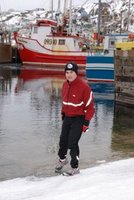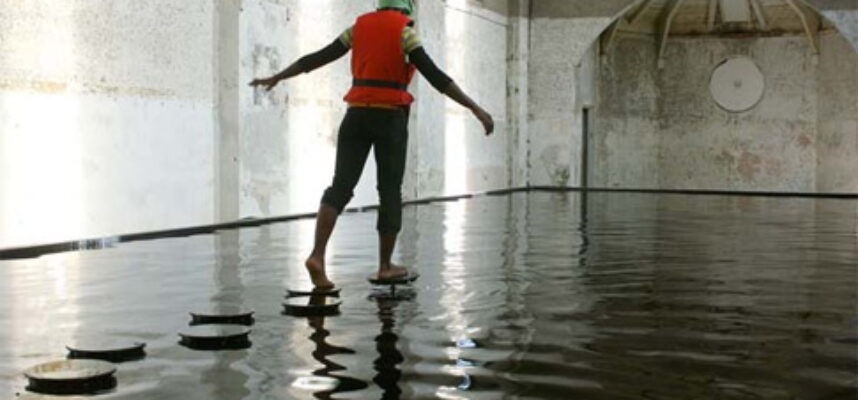13 Jan 2009
0 CommentsAnother One Bites the Dust – and You Thought Business Was in Crisis Mode
“Another one bites the dust.
How do you think I’m going to get along,
Without you, when you’re gone”
Queen
This is a call to action where individual citizens can make a huge difference.
The recent loss of a local cultural gem, namely King Street Theatre:
Curtain Closes on Another Local Local Theatre
and the near death experience of the 87 year old cultural gem the Grand Philharmonic Choir, from cash flow challenges, has shone a spotlight on how the financial meltdown is already impacting the Waterloo area arts and cultural scene. As one who supported King Street Theatre’s original capital campaign, I feel this loss personally. Further, I am optimistic that many in our community share this sense of loss.
Many of the key funders who directly invest in our cultural sector, such as local foundations and individual donors, have seen their financial investments tank along with the rest of us. Given that 2009 contributions will largely be determined by 2008 investment returns, we are probably just seeing the tip of the iceberg.
The media cites lack of citizen interest or poor attendance as the root cause. Many business people working with social enterprises observe that many organizations lack the right management to deliver better results. While all true, I would posit that the challenges of the cultural sector are much more complex. I’m as much a believer in economic Darwinism, which dictates that in order to have real success, you also need to have failures. In fact, my recent post Playing the Lottery after the Meltdown underscores this notion in regard to the recent government led auto sector bail outs. Mark McArdle’s post What I Didn’t Get for Christmas makes an even stronger case for economic Darwinism.
That being said, much of the social sector, including arts, culture, the environment and many other social causes, have long operated in a marginal and underfunded state. This, for most organizations, trumps the above concerns about attendance or management quality. It is fortunate indeed that many community leaders met last September at the Prosperity Council of Waterloo Region: Task Force on Creative Enterprise to begin to put together a comprehensive, strategic initiative to invest in and develop our overall capabilities in the Creative and Cultural sphere. While from an early 2009 perspective, this might not at first appear to be the ideal time to launch such a big idea, we need to remember that such initiatives are long term and may need a number of years to properly gestate. Ideally, need to be ready so that our collective efforts can bear fruit in time for the next economic boom in the Waterloo area.
Meanwhile, I would call all citizens who care about the cultural future of the Waterloo area to respond with their support. While each of us may favour different organizations and ways to provide that support, we all need to do our part. The great community we live in depends on each of us to personally help to nurture and invest in its future.


 Jonathan @ Victoria/Mile 0
Jonathan @ Victoria/Mile 0 Jonathan sincerely appreciates all of the enthusiasm and support that he received along the way, especially from those individuals and families who deal with Autism every day, yet who found time in their otherwise heavily committed schedules to host local events, come out and meet him, and support him. Likewise, Jonathan is heartened by the many people from all walks of life, who, although they do not have direct connection to ASD, lent their efforts to the run and showed their concern and support for their fellow Canadians.
Jonathan sincerely appreciates all of the enthusiasm and support that he received along the way, especially from those individuals and families who deal with Autism every day, yet who found time in their otherwise heavily committed schedules to host local events, come out and meet him, and support him. Likewise, Jonathan is heartened by the many people from all walks of life, who, although they do not have direct connection to ASD, lent their efforts to the run and showed their concern and support for their fellow Canadians.
 Ray Simonson
Ray Simonson









15 Feb 2009
0 CommentsGetting Creative – “Yes We Can” or “Mind the Gap”?
In today’s challenging economic times, it is extra important for governments, academics and individuals to plan our future economic prosperity. Thus, it is timely that Richard Florida and Roger Martin from the Martin Prosperity Institute, Rotman School of Management, University of Toronto this month published Ontario in the Creative Age, which provides a detailed future-oriented policy blueprint.
It sets a policy agenda to help us unleash our full potential in the Twenty-first Century where economic success is increasingly coming from creatively-oriented enterprise versus our traditional strength in routine physical and routine service occupations. The report is backed by research which highlights both our existing strengths and weaknesses including those in education, income and even the gap in our creative/routine job mix compared to our peers. Starting from the base of today, the agenda suggests four main focus areas to drive future prosperity:
Having read this paper, it is encouraging to see such a forward thinking analysis that will certainly drive future governmental, business and economic decision and policy making. With that in mind, and being of an optimistic “yes we can” mentality, I was, however, struck by how very little attention was paid to the biggest gap of all — Funding this agenda.
Without proper funding, our ability to transform our economy in these wise and necessary ways, will go unfulfilled. I’ve written about this “funding gap” numerous times and from different perspectives:
I’m certainly not alone in this concern. Many others in positions of thought leadership have raised the issue of funding of investment, some with very specific policy proposals and others just highlighting the gap:
Make no mistake, having surveyed funding sources for startups and social enterprise, Ontario (and Canada) significantly lags most regions in the US and Western Europe — our primary OECD comparables. The reasons for this are numerous and will be discussed in a separate posting, but this funding gap is our extra hurdle before we can be successful in driving the Florida/Martin challenge to transform Ontario to a creative economy.
And to be clear, this transition to the creative economy needs to be driven by the competitive, market economy. That implies that it will not the primary role of governments to provide the major funding for our transformation. Fundamentally, governments should not be picking winners and losers, but simply equiping market forces to go to work. And, given our long history and culture of relying on governments for answers, it is important to clarify that point. With the right framework in place, businesses and individuals will compete to drive the path to our future.
Thus, as their primary task, it is imperative that our federal and provincial governments develop a strong and co-ordinated policy framework, dealing with taxation, security regulation, and the like, to encourage the private sector to make such investments. And, in our current times of economic stimulus, the extra icing on the cake should be to channel some of those near term stimulus dollars toward growing the creative sector that is so essential to our future economic prosperity.